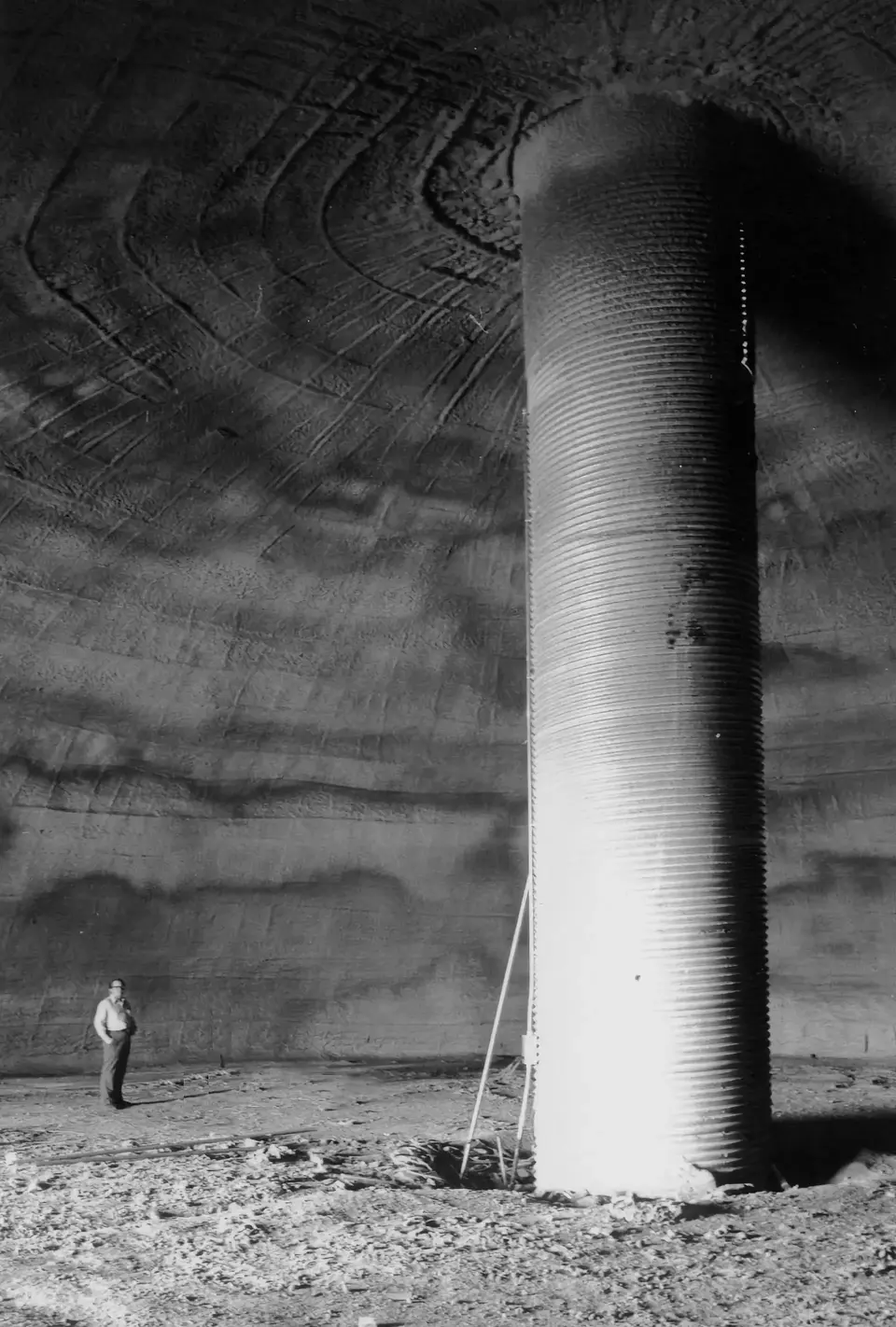The First Monolithic Dome

The first Monolithic Dome was owned by the inventors and builders—David B. South and his brothers, Barry and Randy—of Shelley, Idaho. They leased the large potato storage facility to a local grower.
The very first Monolithic Dome ever built was a potato storage, inflated on April 5, 1976, in Shelley, Idaho. The dome was 105 feet in diameter (32 m) by 35 feet tall (10.6 m).

David B. South admires the prototype Monolithic Dome in 1975. The brothers were awarded patents for the construction process in 1979 and 1980.
David B South and his brothers, Barry and Randy, began insulating potato storages with polyurethane foam in the 1970s. Their company, Souths Incorporated, grew to be the largest foam spraying operation in the Northwest. The brothers had extensive experience insulating potato cellars and innovating new and better storage methods.
Because of this experience, it was a natural progression for them to build a potato storage as the prototype for the invention they had been working on for many years—the Monolithic Dome. David and his brothers had always wanted to build big domes, so they went big on their prototype. And, because the prototype Monolithic Dome would be strong, air-tight, highly insulated and large enough, they knew it was the ideal structure for potatoes to be stored in.
Potatoes are stored alive but can be kept “asleep” for extended storage. The temperature has to remain at a constant 43 degrees Fahrenheit (6°C) and a humidity of 98 percent. Monolithic Domes maintain a constant temperature easily, as well as even humidity.
The first dome has since been torn down, but two more very early Monolithic Domes remain on the adjacent lot.